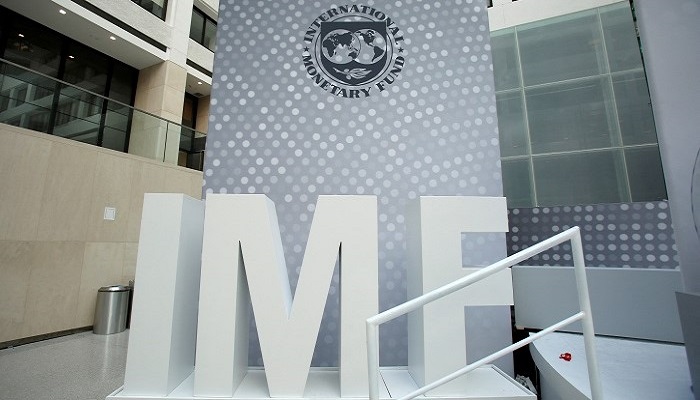
- Potential delay linked to Saudi Arabia conditions on the Reko Diq project.
- Sources suggest Pakistan has a backup plan if Saudi oil facilities shut down.
- The IMF mission discusses external financing in the context of economic challenges.
ISLAMABAD: The visiting mission of the International Monetary Fund (IMF) has expressed concerns over the execution of the $1.2 billion Saudi Oil Facility (SOF), as Saudi Arabia may condition the disbursement to progress on the multi-billion dollar Reko Diq project, potentially causing delays, News reported.
Saudi Arabia had initially assured the IMF of SOF of $1.2 billion as part of Pakistan’s $7 billion bailout package, approved by the IMF Executive Board a few months ago.
However, the IMF now fears that the oil facility could face obstacles, even though a delegation from the Saudi Fund for Development (SFD) is expected to visit Islamabad next month.
However, sources close to the Prime Minister’s office reveal that Pakistan had a Plan-B, which excludes SOF, but did not share the details.
In another blow, Pakistan missed a structural benchmark (SB) to amend the Agricultural Income Tax (AIT) by the four legislative assemblies under the condition of the IMF until the end of October 2024.
Although the provincial cabinets have already given the green light, so far the provincial assemblies have not yet approved the bill.
Pakistan may have to seek a waiver from the IMF Executive Board regarding this delay in timely implementation of the SB.
The IMF explicitly wrote in its staff report that “provincial tax reforms will include (i) fully aligning their AIT regimes with the federal personal and corporate income tax by October 2024 (RS end of October) with implementation from January 1, 2025 and collection in July 2025.”
The IMF highlighted a $2.6 billion risk in securing external financing due to a potential deficit for the current fiscal year.
The IMF staff’s mission becomes stricter following the evaluations of the members of the Executive Board in which “the directors took note of the ex post peer evaluation and the negative impact caused by the deviations from the to planned policies, and underlined the importance of strong ownership of the implementation and financing of the program. They stressed the need for effective communication to achieve broad consensus and support for reforms.”
Meanwhile, in another development, Federal Board of Revenue (FBR) Chairman Rashid Mehmood Langrial asked the Senate Committee on Finance to hold a closed session when Senator Faisal Sabzwari asked about the mini-budget within the framework of IMF conditionalities.
The MQM-Pakistan senator said he was interested to know if AIT was going to be canceled as currently the amount collected through traffic challans in Karachi Metropolitan Region was more than that of AIT in its province.
The FBR Chairman responded that discussions were ongoing with the IMF and hence it would be appropriate to hold a briefing on this issue behind closed doors in the next meeting.
Chairman Senate Standing Committee on Finance Saleem Mandviwalla said media was bored with closed-door sessions but agreed to FBR chairman’s request to hold closed-door briefing on program and mini-budget of the IMF.
The Finance Ministry and senior IMF officials continued their negotiations on Wednesday and in the first session the external financing gap was discussed.
The Ministry of Finance, the Economic Affairs Division and the State Bank of Pakistan informed the IMF that China has entered into a currency swap agreement worth 3 billion yuan (about $450 million) , but that they did not take into account the request to increase the limits of currency exchanges.
Regarding the Dubai Islamic Bank (DIB), the IMF was informed that there was a $500 million guarantee link from the Asian Development Bank (ADB) and that things would be finalized soon.
In the second session, the Ministry of Finance informed the IMF of the domestic borrowing plan under which the debt servicing cost would be reduced following a reduction in the policy rate from 22 to 15 percent. This would save Rs 1.3 trillion on the debt servicing bill.
Senior FBR officials asserted that the envisaged tax collection target of Rs 12.97 trillion would remain unchanged, without explaining that how the tax deficit of Rs 189 billion that occurred in the first four months would be filled as of during the remaining period of the current financial year.
They also said that GST on petroleum products would not be imposed. This is true because it would be part of the divisible federal pool and 60 percent of the amount collected could be transferred to the provinces under the NFC Award. The option is to increase the tax on oil.
Top FBR officials argued that they recovered Rs 11.84 billion from retailers in the first four months as the number of filers fell from 218,015 in FY2023 to 607 685 in 2024 and the tax paid had increased from Rs 5.3 billion during the last tax. year to Rs9.3 billion so far in 2024.
The increase in tax collection amounted to Rs4.076 billion.
Under withholding tax (WHT) compliance, retailers/wholesalers paid Rs 6.7 billion under Section 236G of the Income Tax Act in 2024, up from Rs 3 .18 billion rupees in FY2023.
Under 236H, retailers paid a tax of Rs9.799 billion in 2024 compared to Rs5.6 billion in 2023.
